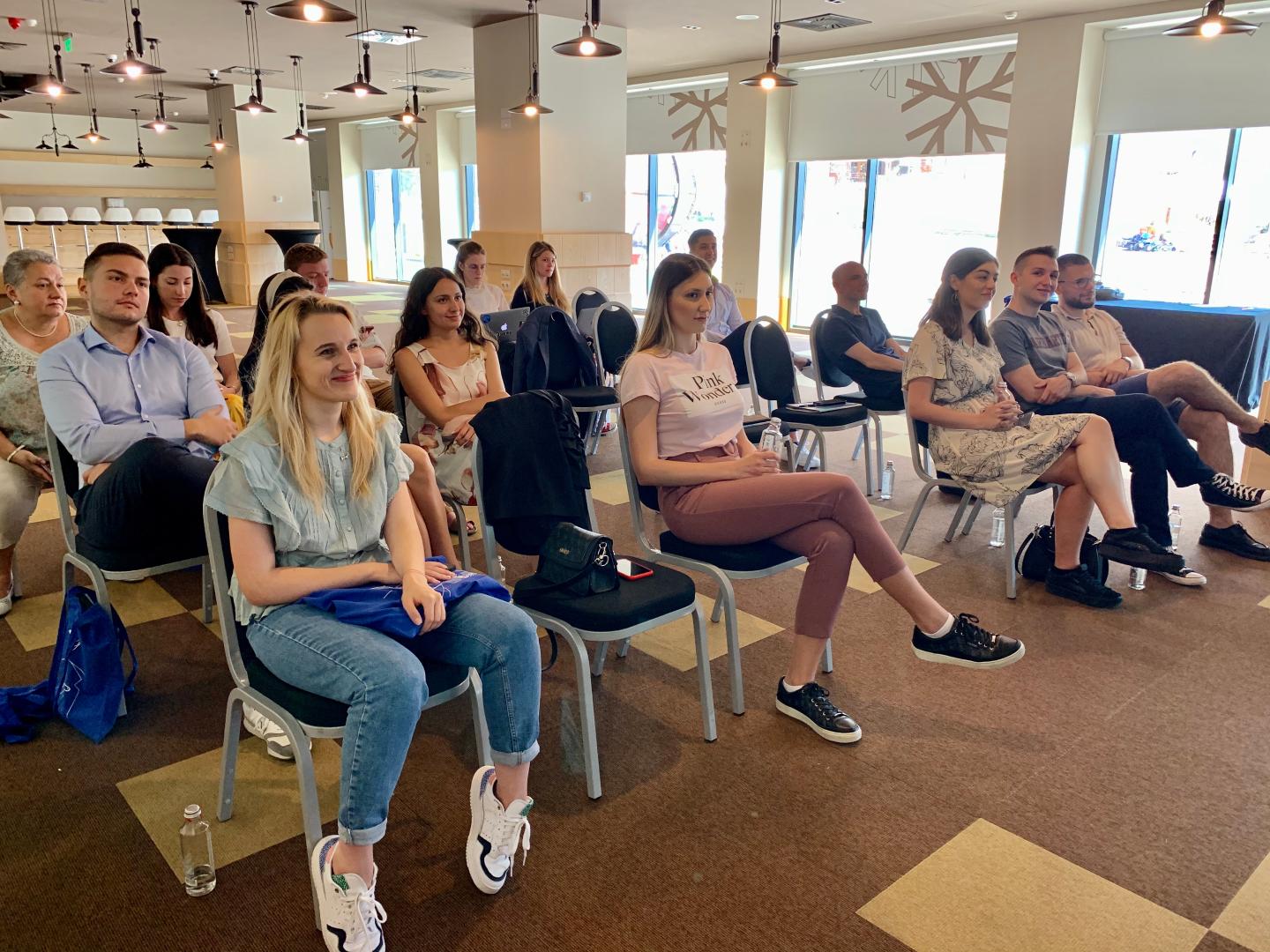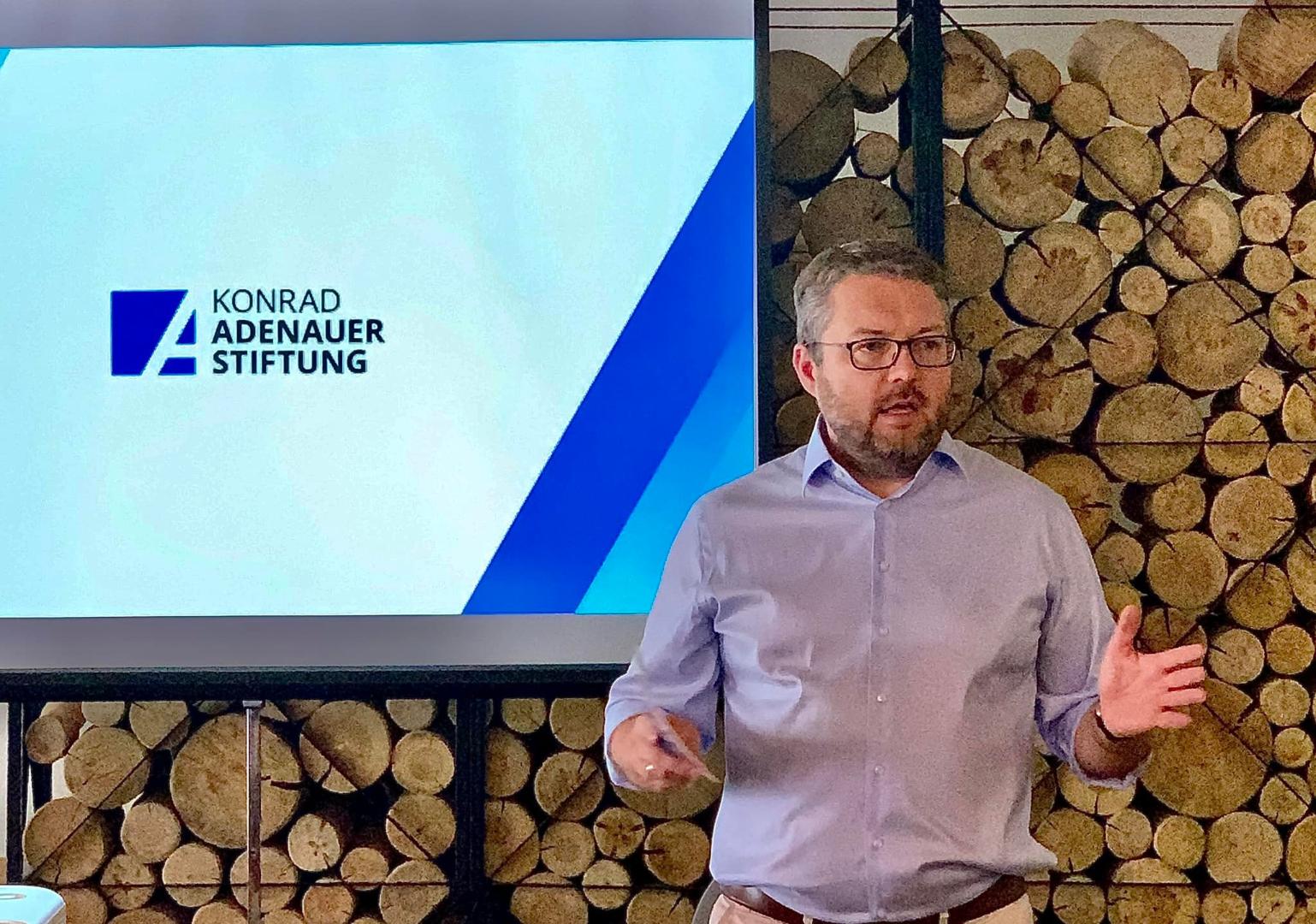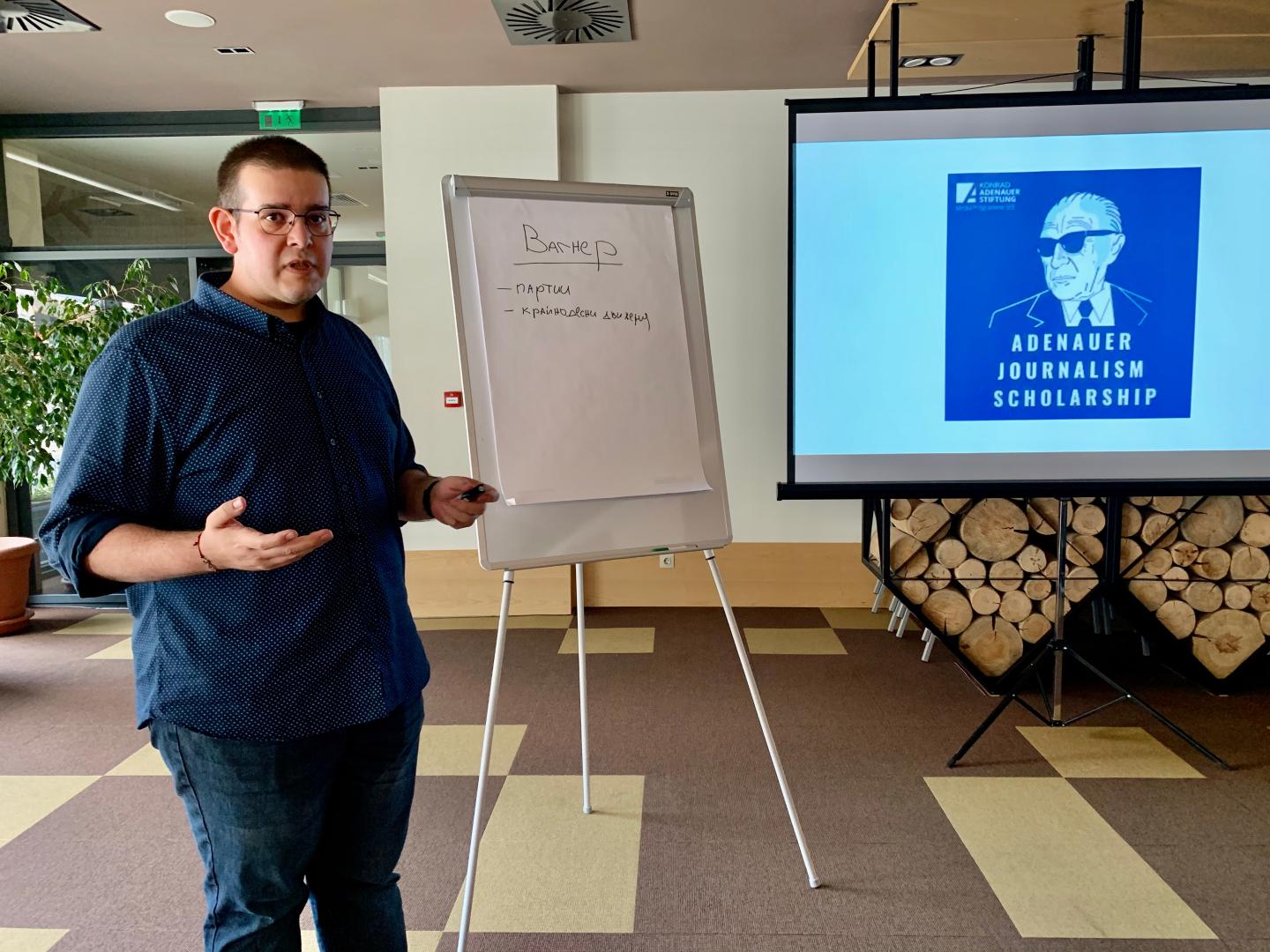Searching for the most important topic right now, the scholars decided to focus on the media aspects of the current war in Ukraine. Scholarship holders from the Konrad-Adenauer-Stiftung Bulgaria were also part of the annual meeting.
Hendrik Sittig, Head of the KAS Media Programme South East Europe, opened the event with clear words on pluralism of opinion in a democratic society: “It is absolutely clear: democracy is based on pluralism, needs pluralism - in other words, many opinions that result in one decision within the societal decision-making process. But, the information through which we form our opinions must, of course, be true. In particular, it must be true if political decisions are made based on this information. Anything else would be fatal. And no, there are no 'alternative facts', as a US president tried to make us believe a few years ago. And we are not living in a 'post-factual age'. No: the earth is and remains round. And if someone claims today that the earth is flat like a disc, it is not our task as journalists to give this opinion equal weight out of a misconceived sense of fairness. One may safely negate it."
The scholarship holders attracted well-known experts from Bulgaria as speakers for the annual meeting, who analysed and evaluated the Russian war of aggression in Ukraine from different perspectives. Among them were Petar Cholakov, Ph.D., Associate Professor of Sociology at the Institute of Philosophy and Sociology of the BAS, Russlan Trad, Freelance journalist, focused on war conflicts all over the world, and Tsvetana Balabanova from bTV Media Group - one of the first Bulgarian journalists to cover the invasion of Russia in Ukraine. All of the lectures focused on a different aspect, connected to the current war situation in Europe.
Peat Cholakov, Ph.D., focused on the media in Bulgaria and the contradictory positions of the Bulgarian government and the presidential institution regarding the war in Ukraine. He also spoke about the sociological factors by which Bulgarians formed their opinion about this topic. The theme of the lecture of Russlan Trad was ‘Eurasia in flames. The consequences of the fall of Kabul and the Russian invasion of Ukraine.’ The freelance journalist and research fellow for Eurasia at the Atlantic Council talked about the correlations between each conflict all over the world and how we can predict the following through processes by learning our lessons in the recent history of our mankind. Tsvetana Balabanova’s theme was focused on the role of social media in the current war crisis. She talked about the perspective of the journalist which reflects the military conflict first-hand.
Apart from exciting lectures, presentations, and numerous discussions, all scholarship holders had the opportunity to take part in a simulation exercise and directly apply the knowledge they had gained. All participants went through a complete communication crisis scenario and thus further developed their strategic thinking, communication skills as well as teamwork skills. In conclusion, a guideline was designed to provide an overview of how to successfully manage communication crises and how to counter fake news and manipulated content.










